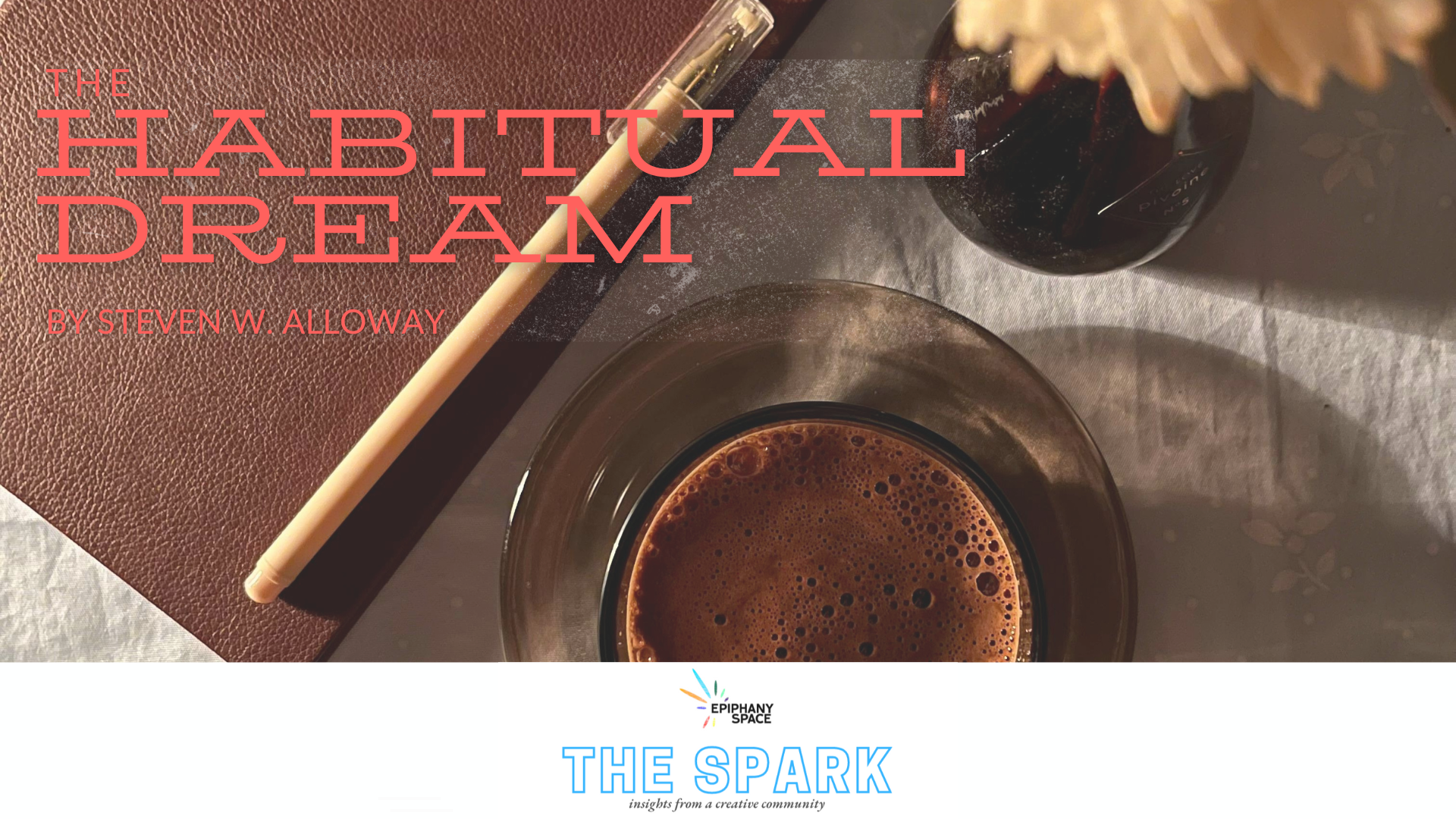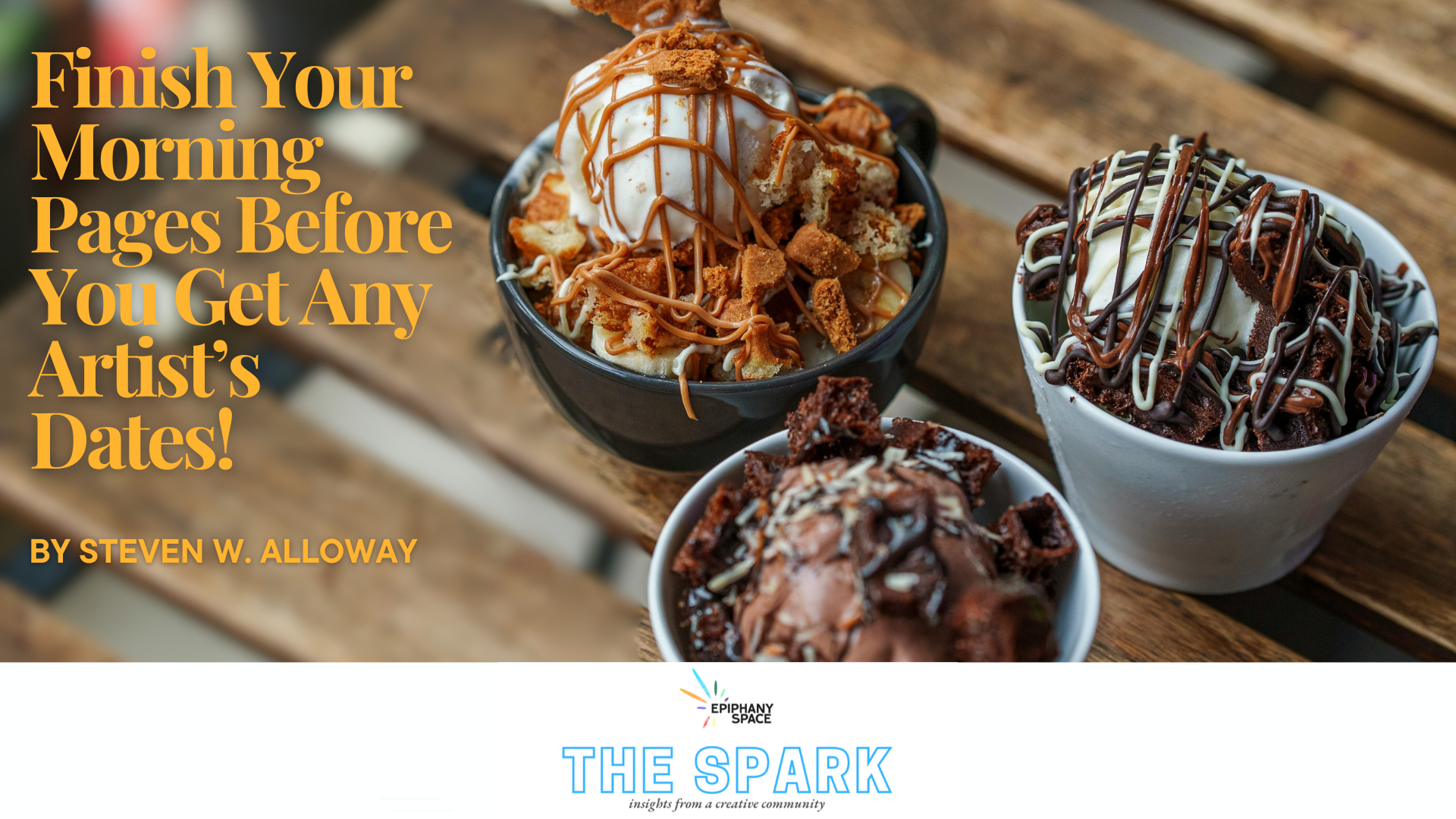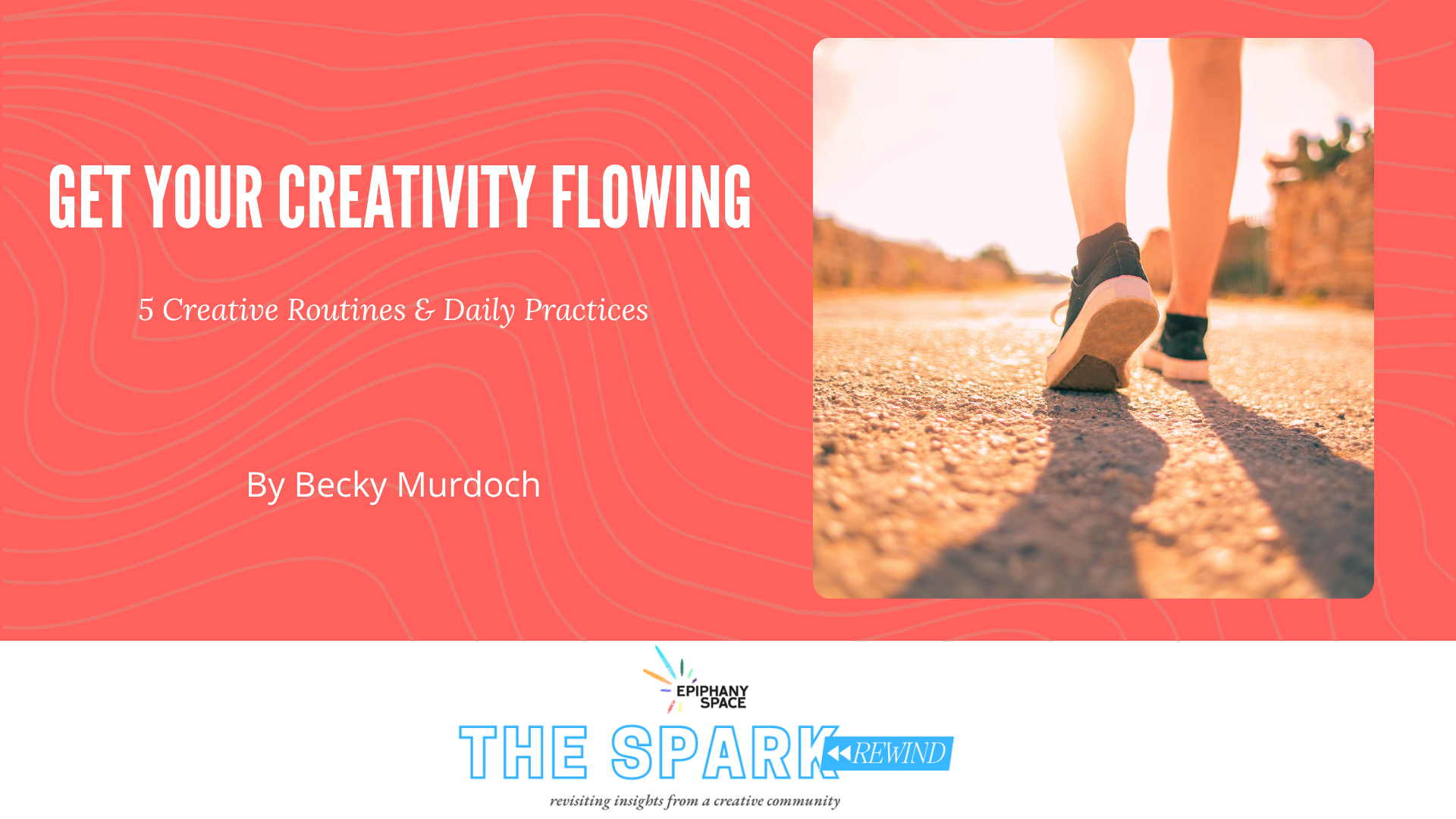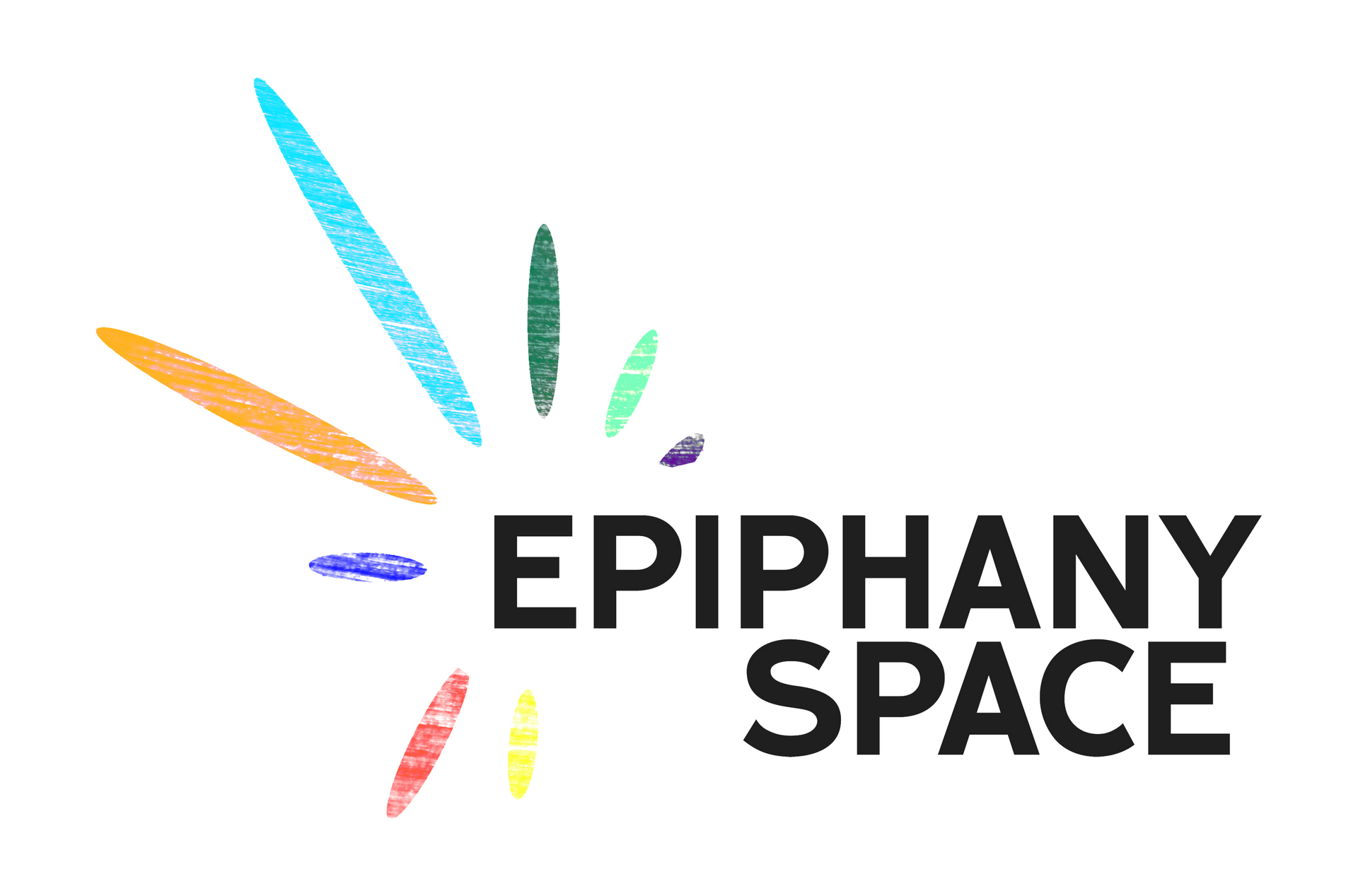Article
The “Right Way” vs. The Way That Works | By Steven W. Alloway
The “Right Way” vs. The Way That Works
By Steven W. Alloway
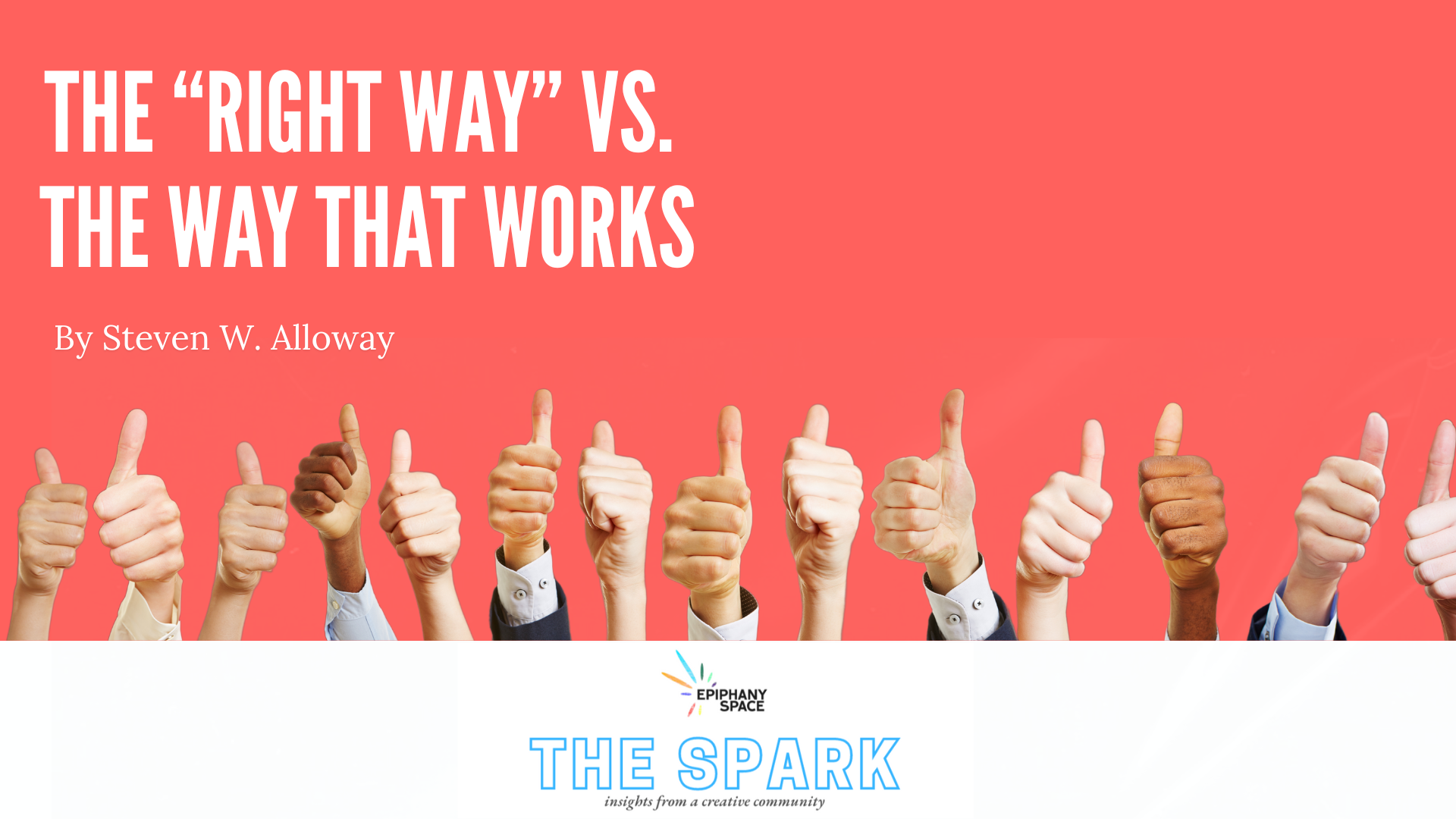
A couple of weeks ago, I saw a post on Facebook. It was actually a screenshot of another post from Twitter. The original post was a picture of 50 different books about personal betterment of all different types: relationships, communication, productivity, business, and of course, art and creativity. Along with a note to the effect of, “50 Books to Improve Your Life.”
The repost on Facebook added the note, “Do yourself a favor and don’t read any of these books.”
Now, of those 50 books, I myself had only read one, but I immediately jumped into the comments to defend it: “The Artist’s Way by Julia Cameron is actually really good and worth reading,” I said.
Then I looked at the other comments. Just about everyone else who chimed in was there to defend exactly one book as well. Everyone’s book was different. Somebody spoke up for
The War of Art. Someone else recommended,
How to Win Friends and Influence People. A couple of people chimed in to defend
Crime and Punishment, which is actually a novel, rather than a self-help book, but according to the original post, it will teach you skills in human behavior.
A number of people even went so far as to say, “This one book is great. All the rest are garbage.” And none of those people recommended the same book.
So what’s the takeaway from this? Everybody is different. What works for someone else might not work for you, and vice versa. We’re talking about establishing creative practices this month. There’s a whole lot of advice out there on the subject: books, lectures, podcasts, and at least three more Spark articles than there were last month (four if you count this one). How do you find the creative practices that will best serve you? That’s something you’ll have to figure out for yourself.
Approaches to Morning Pages
In my article a couple of weeks ago, I admitted that daily practices and routines are not my forte. So I loved reading Becky and Hans’s articles this month to see what they had to say on the subject and what I could learn from them. Both were great and incredibly helpful in different ways.
Becky in particular said
something that caught my attention. With regards to Morning Pages, she talked about sometimes using her voice recorder instead of handwritten pages, noting that Julia Cameron probably would not approve.
In
The Artist’s Way, Julia is indeed very strict about what Morning Pages should entail. Handwrite them, rather than type them on the computer. Do it first thing in the morning, before anything else. And don’t lift your pen from the paper until you’ve filled three full pages. So no, Julia Cameron would probably not approve of Becky’s methods.
But honestly? All due respect to Julia Cameron, but… Who cares what she thinks?
Well, obviously, a lot of people care what she thinks. And her methods have helped a lot of people. In fact, in Hans’s article, he talked about how he was initially skeptical of Morning Pages, but committed to following them to the letter. After a few weeks, it led him to the script for his incredible, highly lauded and awarded, Cannes-screened short film,
A Question of Service. So I think it’s safe to say that the practice worked for him.
But it’s not for everybody. I’ve heard other people talk about typing their Morning Pages on a computer, or even—gasp—doing them in the evening! Certainly not Julia Cameron approved. But if deviating from the established structure provides benefit for someone or proves to be a more effective tool in their artistic toolbox… Why shouldn’t they do it that way?
Opposite Effects
For myself, I don’t care for Morning Pages at all. When I went through The Artist’s Way, I struggled with them every day. Everyone says they get easier as you go along, but they never did for me. I’ve tried them a couple of times since, and it’s always the same result: struggle and frustration. In fact, not long ago, I started wondering if maybe I had been doing them wrong. Maybe I misinterpreted the instructions or missed some key element. So I looked it up. I reread Julia Cameron’s thoughts on the subject and read other people’s musings as well. I looked at what you’re supposed to write, how you’re supposed to do it, and what the benefits are supposed to be.
As near as I can figure, I’m doing everything exactly as I’m supposed to. But it has the opposite effect on me. Doing a “brain dump” first thing in the morning is supposed to clear your mind of worries and distractions, so you can focus better throughout the day. That’s not what happens with me. Instead, writing about all of these things just brings them bubbling up to the surface and gives me a thousand new things to worry about as I start my day.
So instead, I’ve got other routines I go through first thing in the morning. I pick up my phone and do Wordle, Connections, and a couple of similar daily brain puzzle apps. This would also raise the ire of plenty of people trying to help you be your best self. I’ve read countless articles admonishing me not to touch my phone first thing when I wake up.
“Never, EVER do this!” they’ll scold. They say reaching for your phone means getting caught up in e-mails, texts, and Facebook notifications first thing in the morning, which will just add to the cacophony of the day and keep you from starting off with that clear mind that Morning Pages are supposed to bring.
But again, for me it’s just the opposite. I have no trouble brushing aside until later the notifications that have piled up while I’m asleep and instead using my phone to clear my head and wake up my brain, so I can start my day.
Healthy Snacks and Best Practices
Another thing I like to do on my phone is watch food videos. The Facebook algorithm recommends all sorts of them to me, from easy (and sometimes questionable) baking hacks to extravagant cake decorating to barbecue tips and more. As a cook and a baker, some of these videos do inspire me creatively, introducing me to new techniques and ingredients, or helping me to think about different foods and dishes in new ways. But that’s not why I bring these videos up.
One type of video that frequently ends up in my feed is healthy snacks. These are the videos that try to convince you that adding a scoop of protein powder and some maple syrup to Greek yogurt will taste just like cheesecake. I once saw a video where someone added cocoa powder to cottage cheese and called it, “the best chocolate pudding you’ll ever eat.”
I actually love Greek yogurt. Add a little honey and some fresh berries, and you’ve got a delicious and healthy breakfast. But in no way, shape, or form does it taste like cheesecake. And cottage cheese will never taste like chocolate pudding, no matter what you add to it.
Every once in awhile, though, you’ll come across a healthy snack video that has a bit more self-awareness. It was in one of these that I heard a piece of advice that has stuck with me ever since: “The best diet is the one you can stick to.” It may be healthy to eat snacks made of yogurt, protein powder, and cottage cheese. But if that’s what you’re eating, and you don’t find them satisfying, then eventually you’ll crash and burn.
On the other hand, if you take the time to find healthy snacks that you do enjoy and find satisfying, you’ll go a lot farther, even if they have a few more calories and a little less protein than Greek yogurt. And if allowing yourself the occasional small slice of actual cheesecake, or a bowl of chocolate pudding, or whatever else you like, gives you the fortitude to keep up with your diet in the long run, then you’ll ultimately lose more weight than if you eat cottage cheese and cocoa powder for a few days and then fall off the wagon.
It’s the same with creative practices. Everyone loves to tell you what you should be doing on your creative journey. I frequently hear things like, “You’re not a writer unless you write every day,” or “If you’re not using this technique in exactly this way to achieve this result, then you’re doing it wrong.”
But in the end, the best creative practices are the ones you can stick to. The best thing you can do today is the thing that will help you continue on tomorrow and the next day. If that’s three handwritten Morning Pages first thing every day, then more power to you. But if it’s a computer screen or a voice recorder, and if you do it in the afternoon or evening instead of in the morning… As long as you’re getting a benefit out of it, and as long as it’s serving you on your creative journey, that’s what counts.
All of these things that people say are hard and fast, unbreakable rules… When it comes down to it, they’re just guidelines. Your creative journey is yours and yours alone to take. So you’re the only one who gets to decide what tools you use or how you’ll use them. As long as they get you to your destination, that’s all that matters.
Then once you get there, have a slice of cheesecake, or some chocolate pudding. You’ve earned it.

